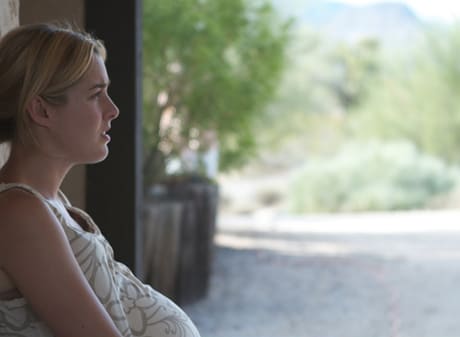Since we've been on an increasingly erratic cultural trajectory of technological improvement for the sheer sake of capability and market demand, it's inevitable that its relation to the modern identity would become a hot subject for deconstruction. Some are thrilled merely with the possibilities of endless advancements and modifications to the human quotidian, while others question the nature of excess minutiae on our ability to connect and engage with the world around us (and ourselves) amidst constant distractions and impeding mediums of communication. Lisa Robinson and Annie Howell's directorial debut, Small, Beautifully Moving Parts, assesses both of the above perspectives on the subject, leaning more towards the latter belief of technology as an instigator of human disconnect, but with an explanation. Their protagonist, Sarah Sparks (Anne Margaret Hollyman), is obsessed with gadgetry and invention, taking apart and assessing every new product that comes her way. This youthful curiosity serves her well in an economic capacity, giving her job prospects and skill sets, but when she's more intrigued by how a home pregnancy test works than by its positive reading, she starts to question her ability to relate to the world on a human level. Her ensuing road trip, or pseudo-hippie coming-of-age, takes a predictable path when her TomTom leads her astray on the road to find her estranged mother, who, incidentally, lives off the grid. On her way there, she stops by her father's place to determine his take on the feeling of disconnect she has, only to wind up discussing communication mediums and help him fix his internet firewall for an impending romantic Skype conversation with a woman across the world. The parallels are obvious, as is everything else in this movie, but Hollyman has a natural charm that transcends the mostly generic material. Even the decision to have her conduct interviews with real people about the nature of photography and its ability to shift perspective on memory works because of her reactions (along with the fact that most people just stare at her blankly). It's just unfortunate that there's little else of note in this movie aside from her character and portrayal. Included with the DVD are the director's respective short films: Head Stand (Robinson) and The Failure of Pamela Salt (Howell). Neither short is particularly good, but they make it clear how each director contributed to this feature film. Robinson has a stronger sense of aesthetics and Howell is a better storyteller.
(Film Movement)Small, Beautifully Moving Parts
Lisa Robinson & Annie Howell

BY Robert BellPublished Nov 5, 2012